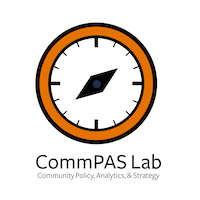Imagining Equitable Policy

Course site for LPPS 5360 Imagining Equitable Policy, Fall 2021
Overview and Goals
The Biden administration’s Executive Order 13895 calls on the Federal Government to advance equity in order “to provide everyone with the opportunity to reach their full potential.” One admission embedded in this charge is that the policies that order our common life have not historically centered equity.
What would it mean to prioritize equity in policy? What are the possibilities for more universal inclusion, belonging, and flourishing? More specifically, how can equity be operationalized across all stages of the policy process – from problem identification and formulation, to policy intervention and analysis, and policy design and implementation? How might we evaluate the way current policies or proposals support or hide inequitable processes, outcomes, or treatment? What effect does policy design and implementation have on peoples’ experience of policy in ways that feel more or less exclusionary? In short, how can we know if our policy efforts promote equity in practice? These are the questions that will shape our work.
We will consider key policy stages, in turn - formulation, analysis, and implementation – to (1) examine multiple policy frameworks, current ways we think about policy and the policy process, and ask where an equity lens could be usefully incorporated in policy formulation; (2) work through the classic steps in policy analysis to propose how equity could be centered in each when evaluating alternatives; and (3) look at policy design choices to understand their impacts. Despite rhetorical gestures toward equity, a presumption that choices made in “the public interest” must be good, equity has not traditionally been an emphasis of theories of the policy process, policy analysis, or implementation. There is no ready guidebook for how to understand what an equitable policy process or policy choices or policy designs look like. We will work together over the course of the semester to imagine where questions of equity fit, how to evaluate the equity of current practice and policies, and what changes would be required to fully engage that evaluation.
Over the course of the semester, we will develop a roadmap for equitable policy evaluation – in problem identification and formulation, interventions and analysis, and implementation and evaluation. Through team-based projects focusing on policies targeted at the challenges faced by different populations and people, we’ll generate concrete examples of what such a process could look like across domains.
Get in touch!
- Professor Michele Claibourn (email: mclaibourn@virginia.edu)
- Course Collab
- Course Perusall
- Office hours: Wednesdays 3:30-5:00 – we can meet outside, on zoom, or find another acceptable spot (sign up on collab); or let’s find another time to talk by zoom/phone.